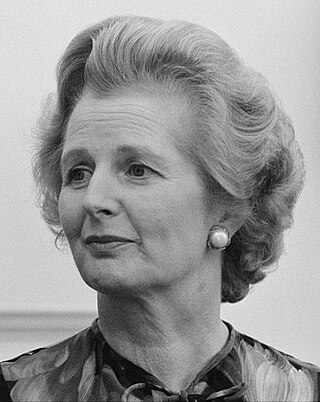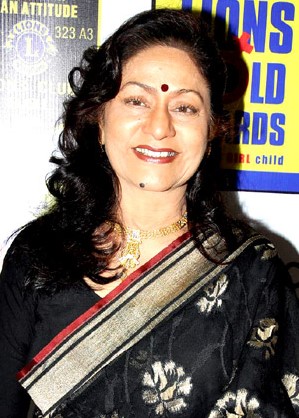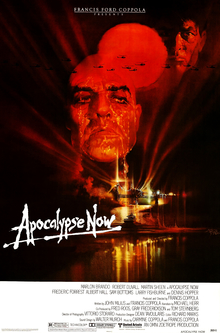Related Research Articles

Andrew Johnson was the 17th president of the United States, serving from 1865 to 1869. He assumed the presidency following the assassination of Abraham Lincoln, as he was vice president at that time. Johnson was a Democrat who ran with Lincoln on the National Union Party ticket, coming to office as the Civil War concluded. He favored quick restoration of the seceded states to the Union without protection for the newly freed people who were formerly enslaved. This led to conflict with the Republican-dominated Congress, culminating in his impeachment by the House of Representatives in 1868. He was acquitted in the Senate by one vote.

Disco is a genre of dance music and a subculture that emerged in the 1970s from the United States' urban nightlife scene. Its sound is typified by four-on-the-floor beats, syncopated basslines, string sections, brass and horns, electric piano, synthesizers, and electric rhythm guitars.

Imam is an Islamic leadership position. For Sunni Muslims, Imam is most commonly used as the title of a worship leader of a mosque. In this context, imams may lead Islamic worship services, lead prayers, serve as community leaders, and provide religious guidance. Thus for Sunnis, anyone can study the basic Islamic sciences and become an Imam.

James Earl Carter Jr. is an American politician who served as the 39th president of the United States from 1977 to 1981. A member of the Democratic Party, he served as the 76th governor of Georgia from 1971 to 1975, and as a Georgia state senator from 1963 to 1967.

Martin Ludwig Bormann was a German Nazi Party official and head of the Nazi Party Chancellery. He gained immense power by using his position as Adolf Hitler's private secretary to control the flow of information and access to Hitler. He used his position to create an extensive bureaucracy and involve himself as much as possible in the decision making.

Shinto is a religion from Japan. Classified as an East Asian religion by scholars of religion, its practitioners often regard it as Japan's indigenous religion and as a nature religion. Scholars sometimes call its practitioners Shintoists, although adherents rarely use that term themselves. There is no central authority in control of Shinto, with much diversity of belief and practice evident among practitioners.

Igor Fyodorovich Stravinsky was a Russian composer and conductor with citizenship in France and the United States. He is widely considered one of the most important and influential composers of the 20th century and a pivotal figure in modernist music.

Gary Cooper was an American actor known for his strong, quiet screen persona and understated acting style. He won the Academy Award for Best Actor twice and had a further three nominations, as well as an Academy Honorary Award in 1961 for his career achievements. He was one of the top-10 film personalities for 23 consecutive years and one of the top money-making stars for 18 years. The American Film Institute (AFI) ranked Cooper at number 11 on its list of the 25 greatest male stars of classic Hollywood cinema.

Charles II was King of Scotland from 1649 until 1651, and King of England, Scotland and Ireland from the 1660 Restoration of the monarchy until his death in 1685.

Pyotr Alexeyevich Kropotkin (1842–1921) was a Russian anarchist and geographer known as a proponent of anarchist communism.

Larry Joe Bird is an American former professional basketball player, coach, and executive in the National Basketball Association (NBA). Nicknamed "the Hick from French Lick" and "Larry Legend", Bird is widely regarded as one of the greatest basketball players of all time. He is the only person in NBA history to be named Rookie of the Year, Most Valuable Player, Finals MVP, All-Star MVP, Coach of the Year, and Executive of the Year.

The 1979 United Kingdom general election was held on Thursday 3 May 1979 to elect 635 members to the House of Commons.

The Soviet–Afghan War was a protracted armed conflict fought in the Soviet-controlled Democratic Republic of Afghanistan from 1979 to 1989. It saw extensive fighting between the occupying forces of the Soviet Union, the DRA and allied paramilitary groups against the Afghan mujahideen, foreign fighters, and smaller groups of anti-Soviet Maoists. While the mujahideen were backed by various countries and organizations, the majority of their support came from Pakistan, the United States, the United Kingdom, China, Iran, and the Arab states of the Persian Gulf. Combat took place throughout the 1980s, mostly in the Afghan countryside. The conflict led to the deaths of between 562,000 and 2,000,000 Afghans, while millions more fled from the country as refugees; most externally displaced Afghans sought refuge in Pakistan and in Iran. Approximately 6.5% to 11.5% of Afghanistan's erstwhile population of 13.5 million people is estimated to have been killed over the course of the conflict. The Soviet–Afghan War caused grave destruction throughout Afghanistan, and has also been cited by scholars as a significant factor that contributed to the dissolution of the Soviet Union, formally ending the Cold War.

The Japanese era name, also known as gengō (元号), is the first of the two elements that identify years in the Japanese era calendar scheme. The second element is a number which indicates the year number within the era, followed by the literal "nen (年)" meaning "year".

ʿAlī ibn Abī Ṭālib was the last Caliph of the Rashidun Caliphate, the successor state to the Islamic prophet Muhammad's political dominions. He is considered by Shia Muslims to be the first Imam, the rightful religious and political successor to Muhammad. The issue of succession caused a major rift between Muslims and divided them into two major branches: Shia following an appointed hereditary leadership among Ali's descendants, and Sunni following political dynasties. Ali's assassination in the Grand Mosque of Kufa by a Kharijite coincided with the rise of the Umayyad Caliphate. The Imam Ali Shrine and the city of Najaf were built around Ali's tomb and it is visited yearly by millions of devotees.

Aruna Irani is an Indian actress, who has acted in over 500 films throughout Hindi, Kannada, Marathi and Gujarati cinema, playing mostly supporting and character roles. She has won two Filmfare Awards for Best Supporting Actress, for Pet Pyaar Aur Paap (1985) and Beta (1992), and has been nominated for most times, holding a record for the most nominations in the category. In January 2012, Irani was honoured with the Filmfare Lifetime Achievement Award at the 57th Filmfare Awards.
The Twelve Imams are the spiritual and political successors to the Islamic prophet Muhammad in the Twelver branch of Shia Islam, including that of the Alawite and Alevi.

Apocalypse Now is a 1979 American epic war film produced and directed by Francis Ford Coppola. The screenplay, co-written by Coppola, John Milius and Michael Herr, is loosely based on the 1899 novella Heart of Darkness by Joseph Conrad, with the setting changed from late 19th-century Congo to the Vietnam War. The film follows a river journey from South Vietnam into Cambodia undertaken by Captain Willard, who is on a secret mission to assassinate Colonel Kurtz, a renegade Special Forces officer who is accused of murder and presumed insane. The ensemble cast also features Robert Duvall, Frederic Forrest, Albert Hall, Sam Bottoms, Laurence Fishburne and Dennis Hopper.

Alien is a 1979 science fiction horror film directed by Ridley Scott and written by Dan O'Bannon. Based on a story by O'Bannon and Ronald Shusett, it follows the crew of the commercial space tug Nostromo, who, after coming across a mysterious derelict spaceship on an uncharted planetoid, find themselves up against an aggressive and deadly extraterrestrial set loose on the Nostromo. The film stars Tom Skerritt, Sigourney Weaver, Veronica Cartwright, Harry Dean Stanton, John Hurt, Ian Holm, and Yaphet Kotto. It was produced by Gordon Carroll, David Giler, and Walter Hill through their company Brandywine Productions and was distributed by 20th Century Fox. Giler and Hill revised and made additions to the script; Shusett was the executive producer. The Alien and its accompanying artifacts were designed by the Swiss artist H. R. Giger, while concept artists Ron Cobb and Chris Foss designed the more human settings.
The Star Canopus diving accident was an incident in Scotland in November 1978 that killed two British commercial divers. During a routine dive beside the Beryl Alpha platform in the North Sea, the diving bell of the diving support vessel MS Star Canopus was lost when its main lift wire, life support umbilical, and guide wires were severed by an anchor chain of the semi-submersible Haakon Magnus. The bell dropped to the seabed at a depth of over 100 metres (330 ft). Its two occupants, 25-year-old Lothar Michael Ward and 28-year-old Gerard Anthony "Tony" Prangley, were unable to release the bell's drop weight in order to return to the surface because it was secured to the bell frame with secondary locking pins. Since there was not a bell stage to keep the bottom door of the bell off the seabed, the divers could not exit the bell to release the pins. Despite the efforts of three rescue vessels – Intersub 4, Tender Carrier, and Uncle John – the bell was not recovered for over thirteen hours, by which time Ward and Prangley had died of hypothermia and drowning.